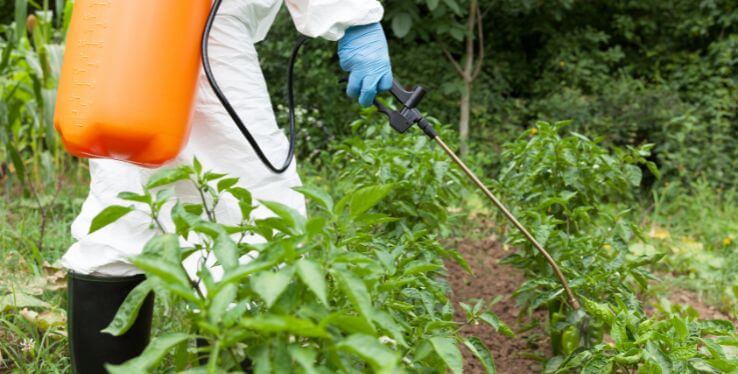- Our Team
- Practice Areas
Social Security
Medical Device Injury
Product Liability
- Case Results
- Testimonials
- Blog
- Contact

Paraquat Exposure Linked to Parkinson's Disease
If you or a loved one were exposed to the herbicide paraquat and subsequently diagnosed with Parkinson’s disease, a paraquat lawsuit might be an option.
Paraquat dichloride, commonly known as paraquat, is a chemical compound used widely as an herbicide in the United States. It is a Restricted Use Pesticide (RUP) and can only be legally purchased and used by licensed applicators. Some products containing paraquat dichloride include Gramoxone®, Helmquat®, Firestorm®, and Parazone®. Due to its extreme toxicity and health risks, paraquat is banned in many countries around the world. Yet despite these risks, bans, and growing evidence linking paraquat dichloride poisoning to Parkinson’s disease, it continues to see heavy use in the United States.
Paraquat Explained
Paraquat gained popularity as an herbicide during the 1960s and was first manufactured for commercial use in the United States in 1962. The herbicide became even more prominent in the late 1970s, when the Mexican government used it to destroy marijuana fields. Paraquat is among the top herbicides in use today, owing in large part to the resistance of plants to other herbicides.
While Monsanto’s Roundup has been the longtime herbicide of choice for the majority of American farmers, its use has been on the decline. This is mainly because pests and weeds have developed a resistance to it, but also because of the increasing number of lawsuits regarding its toxicity and side effects. As a result, farmers have been choosing other herbicides to use on their farms, including paraquat dichloride.
Paraquat Exposure Lawsuit Lawyer
Gold, Khourey & Turak is reviewing claims from people who have been exposed to paraquat and have been diagnosed with Parkinson’s disease. Start your claim today. We offer free consultations, and we do not charge a fee until we win your case. Contact our office at (304) 845-9750. Need help? Get help. Get GKT.


